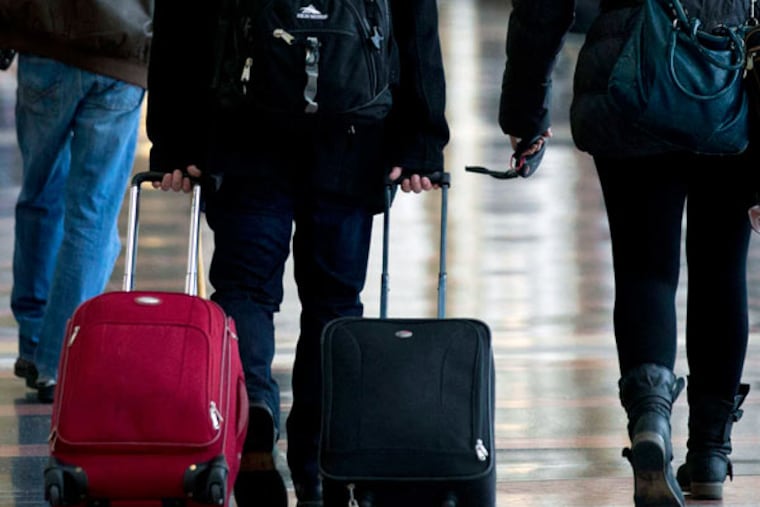Airline profits rise as oil drops; Will fares fall, too?
Airlines are enjoying record profits as oil prices drop and the global economy improves. So far, though, airlines have not passed on their profits to passengers in the form of lower airfares.

Airlines are enjoying record profits as oil prices drop and the global economy improves. So far, though, airlines have not passed on their profits to passengers in the form of lower airfares.
But that may change.
The fall in fuel prices and upturn in the economy could benefit consumers with cheaper travel, the International Air Transport Association (IATA) in Geneva said Wednesday.
The trade group for the world's airlines predicted the average fare could drop 5.1 percent in 2015, excluding taxes and surcharges.
Airline stocks have risen as oil plunged.
Industrywide, airlines are expected to post a $19.9 billion profit this year, up from $18 billion projected in June. Profits are forecast to rise to $25 billion next year. Lower oil prices and stronger world GDP growth are the main reasons, IATA said. Last year, airlines collectively earned $10.6 billion.
"The airline world looks better today than two months ago," JPMorgan Chase analyst Jamie Baker said in a recent note. "We'd characterize nonfuel fundamentals as firmer today than at the end of August."
So far, airfares have held steady while oil has dropped, but starting in 2015, consumers should benefit as jet fuel constitutes a lower proportion of airlines' overall costs.
"Stronger industry performance is good news for all," said Tony Tyler, IATA's chief executive officer. "It's a highly competitive industry, and consumers - travelers as well as shippers - will see lower costs in 2015 as the impact of lower oil prices kicks in."
The fallout from lower fuel prices has a time lag because most airlines buy jet fuel in advance, a practice known as hedging.
At its annual investor day in New York on Thursday, Delta Air Lines is expected to discuss the drop in fuel prices and the impact on its refinery in Trainer, Delaware County. Delta bought the former ConocoPhillips refinery in 2012 to help supply its jet fuel needs.
Fuel and labor are airlines' biggest expenses.
Though the industry outlook is good, there are still risks - political unrest, conflicts, and some lagging regional economies, Tyler said. Even if airline earnings reach $25 billion next year, that will represent just a 3.2 percent net profit margin, Tyler said.
IATA said North America was poised to turn in the strongest performance next year, boosted by industry consolidations. The group forecast North American airliner profit would reach $13.2 billion, up from the $11.9 billion expected this year.
Doug Parker, CEO of American Airlines, noted in a recent employee newsletter that so much of an airline's profitability is tied up in "things we can't control - such as oil prices, the global economy, terrorism fears, Ebola concerns, etc." Add to that bad weather, war, a disruption in oil production.
"With the decline in jet fuel, the market is questioning the airlines' hedging strategies," analyst Helane Becker of Cowen & Co. said in a client update. Many carriers hedge some of their fuel needs to protect against volatility, but when the market price goes below the hedge contract, the airline loses money.
"The hedging question is always a hot issue during times of meaningful declines and spikes in jet fuel," Becker wrote.
US Airways, Philadelphia's dominant airline, did not invest in fuel hedges. American, which merged with US Airways and is headed by US Airways' executive team, sold off the last of American's fuel hedges in June.
Oil prices are down more than 40 percent from the peak this year, a trend expected to continue next year.
Tyler predicted Brent crude would average $85 a barrel in 2015, which would be the first time the annual price has fallen below $100 a barrel since 2010.
Air travel is expected to grow 7 percent next year, the best since 2010, IATA said. Airfreight, which "had been in the doldrums since 2010," is undergoing "a moderate cyclical upturn."
215-854-2831